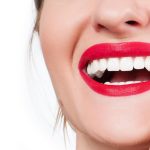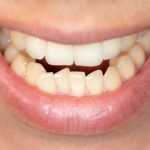Unveiling the Mystery: What Causes the Black Stuff on Your Teeth?

Have you ever looked in the mirror and noticed black stains on your teeth? It can be alarming and make you wonder what could have caused it. The black stuff on your teeth is a common problem that affects many people, and it can be caused by several factors. Understanding the underlying causes of the black stuff on your teeth is the first step towards finding an effective solution. The black stuff on your teeth is typically caused by a buildup of plaque, which is a sticky film of bacteria that forms on your teeth. Plaque buildup can lead to cavities, gum disease, and other dental problems. However, there are other factors that can contribute to the development of black stains on your teeth, such as smoking, certain foods and beverages, and certain medications. In this article, we will delve deeper into the various causes of black stains on your teeth and explore ways to prevent and treat this common dental issue.
The black stuff on teeth is a common dental issue that many people experience at some point in their lives. This discoloration can be caused by a variety of factors, including poor dental hygiene, smoking, certain foods and drinks, and even certain medications. One of the most common causes of black teeth is the buildup of tartar and plaque, which can occur when bacteria in the mouth feed on sugars and starches from food, producing acid that erodes tooth enamel. Other factors that can contribute to black teeth include the use of certain antibiotics, the presence of tooth decay or cavities, and even genetics. Regardless of the cause, it’s important to address black teeth as soon as possible to prevent further damage and maintain good oral health.
Identifying the cause of any problem is crucial in finding the right solution. This holds true for dental issues as well. Knowing the root cause of black stains on teeth can help dentists and patients alike in treating the problem effectively. There can be several reasons for black discoloration on teeth, such as excessive coffee or tobacco consumption, poor oral hygiene, or underlying health conditions. Identifying the cause can help in devising a personalized treatment plan that can work wonders in restoring the teeth’s natural color and preventing further discoloration. Therefore, it is crucial to consult a dentist if you notice black stains on your teeth to get them evaluated and treated promptly.
Poor Oral Hygiene

Poor oral hygiene is one of the leading causes of the black stuff on your teeth. When you neglect your dental hygiene, food particles and bacteria can accumulate on your teeth, forming plaque. Plaque is a sticky film that coats your teeth and can cause tooth decay and gum disease. If left untreated, plaque can harden and turn into tartar, which is a yellow or brown substance that can only be removed by a dentist. Tartar buildup can lead to more severe dental problems, such as cavities, gum disease, and tooth loss. In addition to causing black spots on your teeth, poor oral hygiene can also cause bad breath and a yellowing of the teeth. Fortunately, poor oral hygiene is preventable. By brushing your teeth twice a day, flossing daily, and using mouthwash, you can remove food particles and bacteria from your teeth and prevent the buildup of plaque. It’s also important to visit your dentist regularly for checkups and professional cleanings. Your dentist can identify any potential dental problems early on and provide treatment before they become more severe. By taking care of your dental health, you can prevent the black stuff on your teeth and maintain a healthy, beautiful smile.
The black stuff on teeth is mainly caused by a lack of proper oral hygiene, specifically brushing and flossing. When we consume food and beverages, bacteria in our mouth produce acid that can wear down the enamel and create plaque buildup. Over time, this plaque hardens into tartar, which cannot be removed by regular brushing and flossing alone. Tartar buildup can cause discoloration on teeth, leading to the infamous black stuff. Additionally, certain lifestyle habits like smoking, drinking coffee, and neglecting dental checkups can exacerbate the issue. Therefore, it is crucial to maintain good oral hygiene and visit the dentist regularly to prevent the buildup of tartar and the appearance of unsightly black stains on teeth.
Poor oral hygiene habits can lead to a variety of dental problems, including the development of black stuff on teeth. Some common poor oral hygiene habits include neglecting to brush and floss regularly, not using mouthwash, and failing to visit the dentist regularly. Additionally, consuming sugary or acidic foods and drinks can also contribute to the buildup of plaque and the formation of black stuff on teeth. Smoking and using tobacco products can also stain teeth and contribute to poor oral health. It’s important to establish good oral hygiene habits early on and to consistently follow through with them to maintain a healthy and bright smile.
Maintaining oral hygiene is crucial in preventing dental issues and keeping your teeth healthy. To improve your oral hygiene, start by brushing your teeth twice a day with fluoride toothpaste, for at least two minutes each time. Additionally, flossing daily and using mouthwash can help remove any leftover food particles or bacteria. It’s also important to limit sugary and acidic foods and drinks, as they can contribute to tooth decay and erosion. Regular dental check-ups and cleanings can also help identify and address any issues early on, before they become more serious. By following these tips, you can improve your oral hygiene and maintain a healthy, bright smile.
Tobacco Use
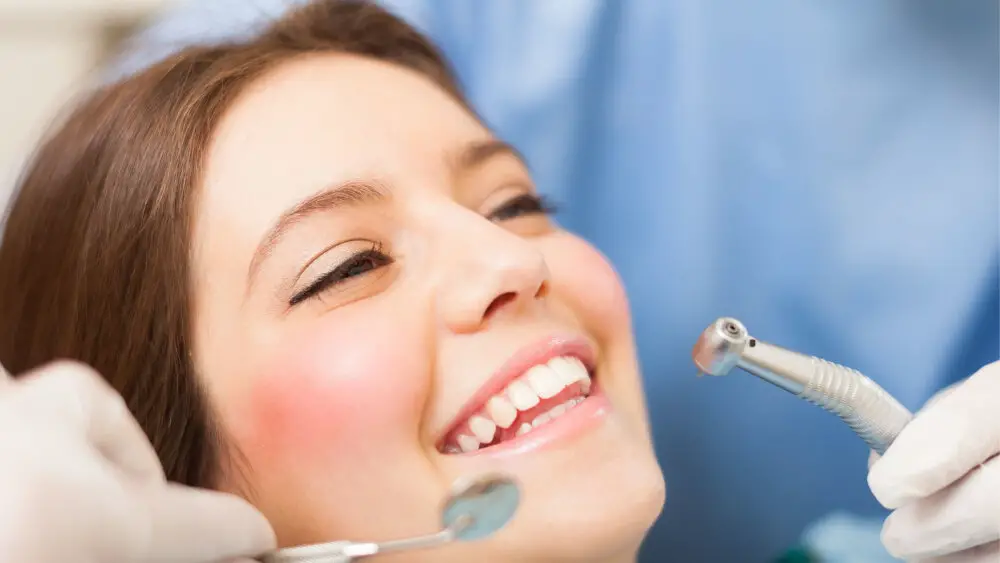
Tobacco use is a major contributor to the black stuff on your teeth. Smoking or chewing tobacco stains teeth and causes them to turn yellow or brown. Tobacco contains nicotine, which is a highly addictive substance that affects the central nervous system. It also contains tar, which is a sticky substance that can cling to your teeth and cause discoloration. Smoking also reduces blood flow to the gums, leading to gum disease and tooth loss. The longer you smoke or use tobacco, the more difficult it is to remove the stains from your teeth. Quitting tobacco use is the best way to prevent further staining and improve your overall oral health. Additionally, tobacco use is a leading cause of oral cancer. According to the American Cancer Society, more than 90% of people with oral cancer have used tobacco in some form. The risk of developing oral cancer increases with the amount and duration of tobacco use. Symptoms of oral cancer include sores in the mouth or on the lips that do not heal, persistent mouth pain, difficulty swallowing, and a lump or thickening in the cheek. Early detection is key to successfully treating oral cancer. Regular dental check-ups and self-examinations of the mouth and throat can help detect any potential issues before they become serious.
Smoking and chewing tobacco are two of the most significant causes of the black stuff on teeth. Tobacco products contain nicotine, tar, and other chemicals that can cause tooth discoloration. Nicotine and tar can create a sticky film on the teeth that attracts and collects bacteria and other particles, leading to plaque buildup. Over time, plaque can harden into tartar, which is more difficult to remove and can cause additional discoloration. The chemicals in tobacco can also decrease blood flow to the gums, leading to gum disease and further tooth discoloration. Therefore, quitting smoking and chewing tobacco can not only improve overall health but also help prevent the development of the black stuff on teeth.
The use of tobacco products is one of the leading causes of the black stuff on teeth. Cigarettes, cigars, and chewing tobacco all contain high amounts of tar and nicotine, which can stain teeth over time. Smokeless tobacco products, such as snuff and chewing tobacco, are particularly harmful as they are held in the mouth for extended periods and can cause the gums to recede, leading to even more significant discoloration. Additionally, the chemicals in tobacco can weaken tooth enamel, making it more susceptible to staining and decay. Quitting tobacco products is one of the best ways to prevent the build-up of the black stuff on teeth, as well as to improve overall oral and physical health.
While the article mainly discusses the causes and effects of tobacco use on dental health, it’s important to note that quitting tobacco use altogether is the best way to prevent these issues from occurring. Quitting tobacco can be challenging, but there are several tips that can help make the process easier. Firstly, set a quit date and inform your friends and family so that they can support you throughout the process. Secondly, consider using nicotine replacement therapy or medication to help manage withdrawal symptoms. Thirdly, find alternative ways to cope with stress or anxiety, such as exercise or meditation, instead of turning to tobacco. Lastly, remind yourself of the benefits of quitting, such as improved health and saving money, to stay motivated. With determination and support, anyone can successfully quit tobacco use.
Diet and Drinks

Diet and drinks play a significant role in the formation of the black stuff on your teeth. Foods and beverages that are high in sugar, acid, and dark pigments can erode the enamel and stain your teeth. For instance, coffee, tea, and red wine are notorious for their staining properties. Similarly, acidic drinks like soda and sports drinks can weaken the enamel and make it more susceptible to staining. Sugary foods like candy, pastries, and sodas also promote the growth of bacteria in your mouth, which can produce acids that wear away the enamel and cause cavities. On the other hand, a diet rich in fruits, vegetables, and lean protein can help protect your teeth from staining and decay. Fruits and vegetables like apples, carrots, and celery can help scrub away plaque and bacteria from the surface of your teeth. Dairy products like milk, cheese, and yogurt are also beneficial as they contain calcium and phosphates that strengthen the enamel and protect against decay. Drinking plenty of water can also help rinse away food particles and acid that can lead to staining and decay. Overall, a healthy diet and good oral hygiene habits can go a long way in preventing the black stuff on your teeth and maintaining a bright, healthy smile.
The appearance of black stuff on teeth can be attributed to the consumption of certain foods and drinks. Dark-colored beverages such as coffee, tea, and red wine contain chromogens, which are responsible for staining the teeth. Additionally, acidic drinks, including soda and sports drinks, can erode the tooth enamel, making it easier for stains to stick to the teeth. Foods high in sugar and carbohydrates can also lead to the formation of black stuff on teeth because they provide a breeding ground for bacteria. These bacteria produce acids that can wear away at the enamel and create a conducive environment for staining. Proper dental hygiene, including regular brushing and flossing, can help prevent the buildup of black stuff on teeth.
Unveiling the mystery of what causes the black stuff on your teeth can be attributed to various factors, one of which is the consumption of certain food and drinks. There are several examples of foods and drinks that cause black stuff on teeth, such as coffee, tea, wine, and dark sodas. These beverages contain chromogens, which are pigments that attach to enamel, causing stains. Additionally, certain foods like soy sauce, balsamic vinegar, berries, and beets contain natural dyes that can also contribute to discoloration. Consuming these items in moderation and practicing good oral hygiene can help reduce the risk of black stuff on teeth.
The appearance of black stuff on teeth can be unsightly and embarrassing. However, it can be prevented by paying attention to your diet and drinks. Avoid consuming sugary and acidic foods and drinks as they can erode the enamel and cause staining. Instead, opt for a balanced diet rich in calcium, phosphorus, and vitamin D, which can strengthen your teeth and protect them from decay. Additionally, drinking plenty of water can help to wash away any food particles and bacteria that may lead to staining. Regular dental check-ups and cleanings can also help to prevent the buildup of plaque and tartar, which can contribute to the development of black stuff on teeth. By following these tips, you can maintain a healthy smile and avoid the embarrassment of black stuff on your teeth.
Medical Conditions and Medications
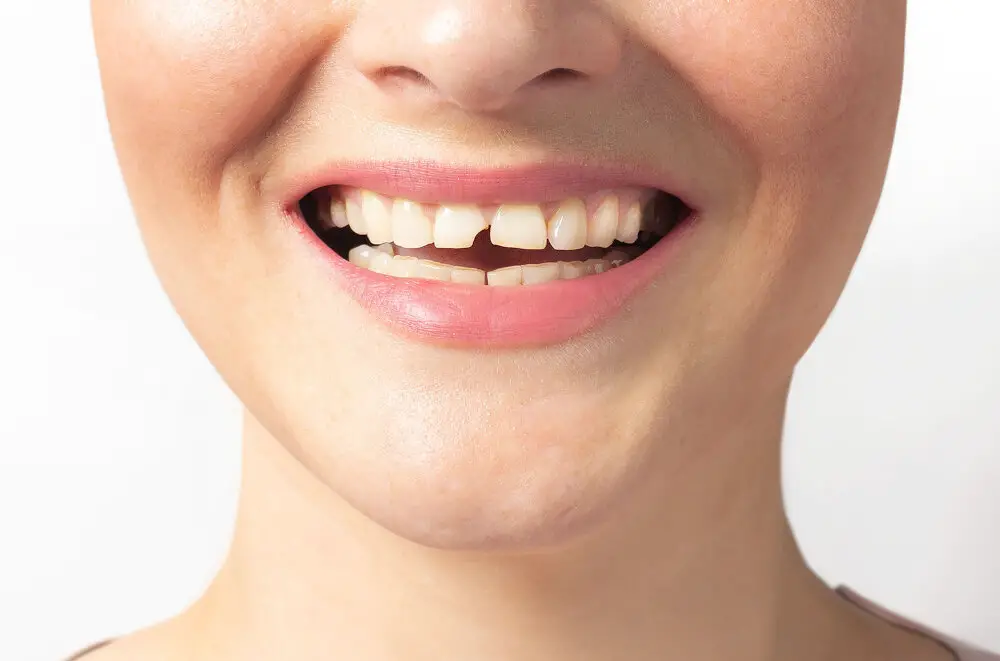
When it comes to the black stuff on your teeth, medical conditions and medications are often the culprits. Certain medical conditions such as gum disease, oral cancer, and some autoimmune disorders can cause black discoloration on the teeth. Gum disease, also known as periodontitis, is caused by bacteria that build up on the teeth and gums. This can lead to inflammation and damage to the gums and bones that support the teeth. As the disease progresses, the gums may recede, exposing the roots of the teeth and causing them to appear black. Oral cancer can also cause black spots or patches on the teeth, as well as other symptoms such as difficulty swallowing and changes in the voice. In addition to medical conditions, certain medications can also cause black discoloration on the teeth. Iron supplements, for example, can cause a black staining known as iron staining. This type of staining is more common in children and can be prevented by taking the supplements with a straw and rinsing the mouth thoroughly after taking them. Other medications, such as antihistamines and some antibiotics, can also cause black staining on the teeth. If you suspect that your medication may be causing black staining on your teeth, talk to your doctor or dentist to see if there are any alternatives available.
The black stuff on teeth can be caused by various medical conditions and medications. One common culprit is poor oral hygiene, which can lead to the buildup of plaque and tartar. Additionally, certain medications such as iron supplements, antacids, and chemotherapy drugs can cause staining on teeth. Medical conditions like tooth decay, gum disease, and oral cancer can also result in black discoloration on teeth. Furthermore, habits like smoking and excessive consumption of coffee, tea, and wine can contribute to the darkening of teeth. It is essential to maintain good oral hygiene and seek medical attention when necessary to prevent the black stuff on teeth and promote overall dental health.
There are several medical conditions and medications that can cause the appearance of black stuff on teeth. One of the most common culprits is poor oral hygiene, which can lead to plaque buildup and eventually turn into tartar. Certain medications, such as iron supplements and liquid iron preparations, can also cause black stains on teeth. Other medical conditions that can cause black stuff on teeth include excessive fluoride exposure, chronic dry mouth, and certain types of bacteria that can cause tooth decay. In some cases, black stains on teeth may also be caused by tobacco use or consuming dark-colored foods and beverages, such as coffee, tea, and red wine.
Taking care of your medical conditions and medications is crucial to prevent the black stuff on your teeth. It’s important to follow your doctor’s instructions and take your medication as prescribed. Some medications can cause dry mouth, leading to a buildup of bacteria and plaque that causes the black stuff on your teeth. To combat this, drink plenty of water and use sugar-free gum or lozenges to stimulate saliva production. Additionally, maintaining good oral hygiene is key. Brush your teeth twice a day, floss daily, and visit your dentist regularly for cleanings and checkups. Avoid smoking and limit your intake of stain-causing foods and beverages like coffee, tea, and red wine. By taking these steps, you can keep your teeth healthy and free of the black stuff.
The black stuff on teeth can be a result of various factors. One of the major culprits is poor oral hygiene, which allows the buildup of plaque and tartar, leading to the discoloration of teeth. Tobacco usage, including smoking and chewing, can also cause black spots on teeth. Consumption of dark-colored beverages such as coffee, tea, and red wine can also lead to staining. Additionally, certain medications and medical conditions can cause black spots on teeth. Regular dental checkups and cleaning, along with good oral hygiene practices, can prevent the buildup of plaque and tartar and minimize the risk of black stuff on teeth.
Proper dental care and regular checkups are essential for maintaining good oral health. Negligence in dental care can lead to the formation of plaque and tartar, which if left untreated can result in cavities, gum disease, and tooth loss. Regular checkups can help detect any dental issues early on, preventing them from worsening. Additionally, dentists can thoroughly clean teeth to remove any stubborn plaque or tartar buildup that cannot be removed with regular brushing and flossing. Proper dental care, including brushing twice a day, flossing daily, and using mouthwash, can help prevent dental problems and keep teeth healthy and bright. Therefore, it is crucial to prioritize dental care and regularly visit a dentist for checkups to maintain oral health.
In conclusion, taking preventive measures is the best way to avoid developing black stuff on your teeth. Besides regular brushing and flossing, it is essential to maintain a balanced diet and avoid consuming too many sugary or acidic foods and drinks. Drinking plenty of water and chewing sugar-free gum can help wash away bacteria and food debris. Additionally, visiting the dentist regularly for cleanings and check-ups can catch any potential dental issues before they worsen. By following these simple tips, you can keep your teeth healthy and free from unsightly black stains.
Conclusion
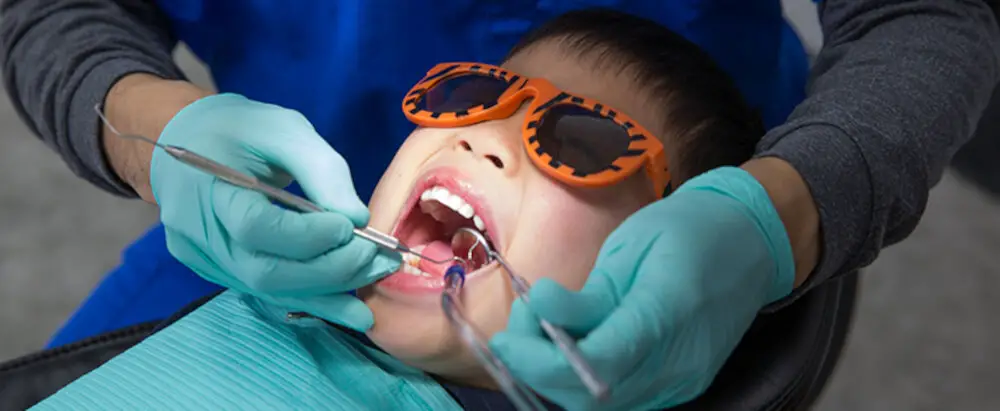
In conclusion, the black stuff on your teeth is not a mysterious occurrence, but rather a common dental problem caused by various factors. Poor oral hygiene, tobacco use, and certain foods and drinks are some of the common culprits. Regular brushing, flossing, and dental check-ups can help prevent the buildup of plaque and tartar, which are major contributors to the black stuff. It is important to take care of your oral health to avoid not only cosmetic issues but also potential health risks such as gum disease and tooth decay. By adopting healthy habits and seeking professional dental care, you can maintain a healthy and beautiful smile.




